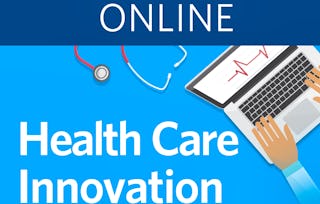In this course, you’ll learn about the key components of health care, and the economics behind their principles and pricing strategies. Professors Ezekiel Emanuel of Penn Medicine and Guy David of the Wharton School have designed this course to help you understand the complex structure of the health care system and health insurance. Through study and analysis of providers and insurance through an economic lens, you’ll learn how basic economic principles apply to both principles and payment methods. By the end of this course, you’ll be able to identify different types of health care providers and understand the dynamic between the providers and patient so you can employ best practices and maximize profit for your health care organization.

The Economics of Health Care Delivery
Ends soon: Gain next-level skills with Coursera Plus for $199 (regularly $399). Save now.

The Economics of Health Care Delivery
This course is part of The Business of Health Care Specialization


Instructors: Ezekiel J. Emanuel, MD, PhD
22,454 already enrolled
Included with
(697 reviews)
Skills you'll gain
Details to know

Add to your LinkedIn profile
8 assignments
See how employees at top companies are mastering in-demand skills

Build your subject-matter expertise
- Learn new concepts from industry experts
- Gain a foundational understanding of a subject or tool
- Develop job-relevant skills with hands-on projects
- Earn a shareable career certificate

There are 4 modules in this course
<strong>Important Program Note: </br>A revised course version is set to launch on or near July 1, 2025. If you are a student with late work, deadlines will be reset and the content will be updated.</strong></br></br>This module is designed to give you an understanding of the history and structure of the American health care system. Dr. Emanuel begins with an overview of ambulatory care providers, the history of health care reform in the United States, an examination of Medicaid and other government insurance programs, and an introduction to private health insurance. Prof. David explores the concept of the iron triangle of health care—quality, cost, and access—and the focus areas for health care policy.
What's included
9 videos2 assignments
This module introduces the economics of insurance, as well as its structure and key components. Prof. David will also examine the concepts of risk aversion and moral hazard, and the challenges of cost sharing and adverse selection.
What's included
6 videos2 assignments
In this module, Prof. David surveys the economics of health care from the physician and hospital perspectives, including the impact of incentives, supplier-induced demand, cost-shifting, and cross-subsidization. Dr. Emanuel explains provider payments to hospitals and doctors, and he examines collaborative care models offering behavioral health.
What's included
9 videos2 assignments
In this module, Prof. David surveys the economics of post-acute and hospice care and the shift toward care outside the hospital. He explains the relevance of vertical and horizontal integration, price discrimination, and price fixing to health systems. And he examines certificate of need and antitrust regulations, as well as the process for determining whether mergers violate antitrust laws. By the end of this module, you will have a deeper understanding of the health care ecosystem, and how various providers of health care affect each other within that system.
What's included
5 videos2 assignments
Earn a career certificate
Add this credential to your LinkedIn profile, resume, or CV. Share it on social media and in your performance review.
Instructors

Offered by
Explore more from Healthcare Management
 Status: Free Trial
Status: Free TrialUniversity of Pennsylvania
 Status: Free Trial
Status: Free TrialNortheastern University
 Status: Free Trial
Status: Free TrialUniversity of Minnesota
 Status: Free Trial
Status: Free TrialUniversity of Minnesota
Why people choose Coursera for their career




Learner reviews
697 reviews
- 5 stars
80.34%
- 4 stars
17.07%
- 3 stars
2.58%
- 2 stars
0%
- 1 star
0%
Showing 3 of 697
Reviewed on Dec 14, 2023
The course was an exposé of the economics of healthcare. In-depth analysis by the tutors that will fascinate and raise your appetite to keep learning.
Reviewed on Sep 10, 2019
I was able to learn simple approach to healthcare delivery systems in the U.S. Thanks to this course, I am ready to move to the next level and learn further.
Reviewed on Apr 25, 2020
Good introduction of the Heath Care market without being too detailed. It is exactly what I needed to start a position in the Health Care industry.
Frequently asked questions
To access the course materials, assignments and to earn a Certificate, you will need to purchase the Certificate experience when you enroll in a course. You can try a Free Trial instead, or apply for Financial Aid. The course may offer 'Full Course, No Certificate' instead. This option lets you see all course materials, submit required assessments, and get a final grade. This also means that you will not be able to purchase a Certificate experience.
When you enroll in the course, you get access to all of the courses in the Specialization, and you earn a certificate when you complete the work. Your electronic Certificate will be added to your Accomplishments page - from there, you can print your Certificate or add it to your LinkedIn profile.
Yes. In select learning programs, you can apply for financial aid or a scholarship if you can’t afford the enrollment fee. If fin aid or scholarship is available for your learning program selection, you’ll find a link to apply on the description page.
More questions
Financial aid available,





